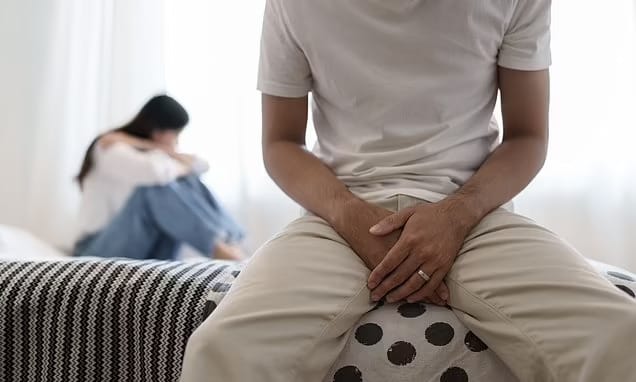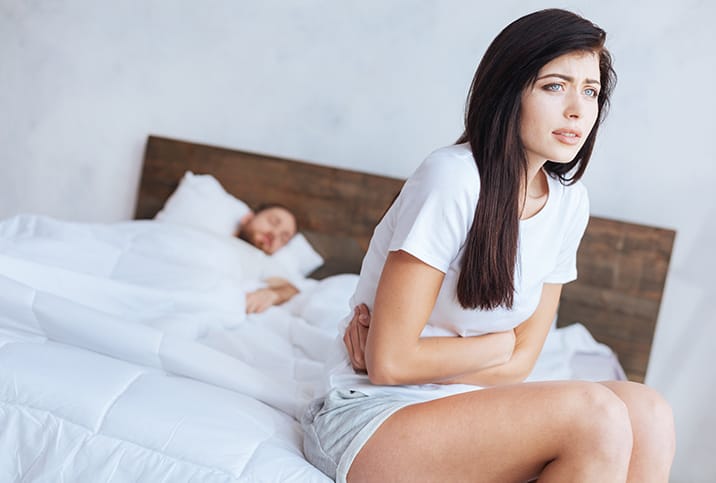Understanding POIS in Men vs. Women: Exploring Differences and Similarities
Post-Orgasmic Illness Syndrome (POIS) is a condition that impacts both men and women, but the way it manifests and the severity of symptoms can vary significantly based on gender. While men have been more frequently diagnosed, recent research suggests that women may also be susceptible to POIS, even though it may go unrecognized or misdiagnosed. Understanding the gender-specific differences in POIS can help shed light on the unique challenges faced by both men and women, leading to better management and support strategies.
A Gendered Perspective on POIS
Post-Orgasmic Illness Syndrome (POIS) is a rare and often misunderstood condition that affects both men and women after sexual activity, resulting in a range of physical, cognitive, and emotional symptoms. While the condition is more commonly diagnosed in men, recent studies and testimonies suggest that women can also experience POIS, though the ways in which it manifests may vary between genders. Despite growing awareness of POIS, its exact cause remains elusive, with ongoing research exploring the potential roles of immune system dysfunction, hormonal imbalances, and genetic factors. Understanding the similarities and differences in how POIS affects men and women is critical for ensuring accurate diagnosis and effective treatment.

POIS in Men: Common Symptoms and Challenges
Men have been the primary focus of most POIS research and diagnosis, as the condition was initially thought to be more prevalent in males. Men with POIS typically experience symptoms immediately following ejaculation, with these symptoms lasting anywhere from a few hours to several days. Here are some of the common symptoms men with POIS report:
-
Flu-like Symptoms: Many men describe experiencing flu-like symptoms, such as muscle aches, fatigue, and a low-grade fever. These symptoms can make daily functioning difficult, especially when combined with other effects of POIS.
-
Cognitive Impairments: Brain fog, difficulty concentrating, and memory issues are among the cognitive symptoms men with POIS frequently face. This can affect their ability to perform tasks at work, study, or engage in complex thinking.
-
Emotional Distress: Emotional symptoms such as irritability, anxiety, and mood swings can occur alongside physical symptoms. Some men also report feeling disconnected or withdrawn after experiencing POIS, which can strain relationships and social interactions.
-
Fatigue and Lethargy: Intense fatigue is a hallmark of POIS in men. Many individuals struggle with overwhelming tiredness that doesn’t improve with rest, leaving them feeling drained for extended periods after sexual activity.
-
Hormonal Influence: Research suggests that hormonal changes following orgasm, including drops in testosterone levels, may play a role in the onset of POIS symptoms in men. This hormonal fluctuation could exacerbate the fatigue and cognitive impairments experienced by many men.

POIS in Women: Symptoms and Diagnostic Challenges
Though POIS has historically been associated with men, growing evidence shows that women can also suffer from the condition. Unfortunately, POIS in women is less well-documented and often goes misdiagnosed due to the overlap of symptoms with other conditions. Women may experience POIS differently than men, and these gender-specific nuances are important to understand.
-
Delayed Symptom Onset: While men often experience symptoms immediately after ejaculation, women may experience a delayed onset of symptoms following sexual activity. Symptoms in women can take several hours or even a full day to appear, making it harder to directly associate them with POIS.
-
Physical Symptoms: Similar to men, women with POIS may report flu-like symptoms, muscle aches, and fatigue. However, women often describe these symptoms as being more diffuse, and they may experience menstrual-like cramps or pelvic discomfort following orgasm.
-
Cognitive and Emotional Symptoms: Women with POIS often report experiencing brain fog, difficulty concentrating, and mood swings. Emotional symptoms such as heightened anxiety or depression may be exacerbated by hormonal fluctuations associated with the menstrual cycle.
-
Hormonal Factors: Women’s hormonal cycles may have a significant impact on their experience of POIS. For some women, POIS symptoms may be more intense during certain phases of the menstrual cycle, particularly during ovulation or premenstrual stages. This connection to hormonal cycles can make diagnosis and symptom tracking more complex.
-
Diagnostic Difficulties: Women with POIS may face additional barriers to diagnosis due to the overlap with other conditions, such as chronic fatigue syndrome (CFS), fibromyalgia, or endometriosis. The lack of awareness about POIS in women means many go undiagnosed or misdiagnosed for years, leading to inadequate treatment.

Gender-Specific Differences in POIS Symptoms
Although many symptoms of POIS are similar between men and women, there are some key differences in how the condition manifests based on gender. Understanding these differences can help with diagnosis and management strategies tailored to each gender:
-
Symptom Timing: Men tend to experience symptoms immediately or shortly after ejaculation, while women may have a delayed response that takes hours or even days to manifest.
-
Hormonal Influence: Both men and women experience hormonal fluctuations related to POIS, but the impact of these changes may differ. Testosterone plays a central role in men, while women may experience greater hormonal variation due to their menstrual cycle.
-
Cognitive and Emotional Impact: Both genders report cognitive symptoms such as brain fog and memory problems, but emotional symptoms like anxiety, irritability, and mood swings may present differently based on individual hormonal influences.
Similarities Between Men and Women
While men and women may experience distinct symptoms related to POIS, they also share a number of common challenges. Understanding these similarities is crucial for developing comprehensive treatment strategies that address the needs of all individuals with POIS.
-
Fatigue and Cognitive Impairment: Both men and women often report intense fatigue and cognitive fog following orgasm, which can last for days. These symptoms are some of the most universally shared across genders.
-
Impact on Sexual Well-Being: POIS affects the quality of life for men and women alike by creating anxiety around sexual activity, due to fear of triggering debilitating symptoms.
-
Emotional Distress and Isolation: Both genders can experience significant emotional distress as a result of living with POIS. The condition can lead to feelings of frustration, isolation, and anxiety about future sexual encounters.
-
Challenges in Diagnosis: Whether male or female, individuals with POIS often face a similar lack of awareness from healthcare providers, leading to delayed diagnoses or misdiagnoses, which can contribute to further distress.
Treatment Considerations for Men and Women
However, gender-specific factors should also be considered when developing treatment strategies for individuals with POIS.
-
Hormonal Therapy: For men, treatments that address hormonal imbalances, such as testosterone replacement therapy, may help alleviate symptoms. Women may benefit from hormone regulation therapies that focus on stabilizing the menstrual cycle or managing hormonal fluctuations associated with POIS.
-
Symptom Management: Both men and women can benefit from symptom management approaches, such as anti-inflammatory medications, supplements to support cognitive function, and lifestyle changes to reduce stress and inflammation.
-
Psychological Support: Addressing the emotional and psychological impact of POIS is crucial for both men and women. Therapy, support groups, and mindfulness practices may help individuals cope with the mental health aspects of POIS.
Conclusion
Understanding the gender-specific differences in POIS is crucial for improving diagnosis, treatment, and support for individuals living with the condition. While men have been the focus of most research, it is increasingly clear that women also experience POIS, though their symptoms and challenges may differ. By recognizing the unique ways POIS manifests in men and women, healthcare providers and researchers can develop more tailored and effective strategies for managing this condition. As research into POIS continues, we hope to uncover more answers about the role of gender in this complex and often misunderstood syndrome.
